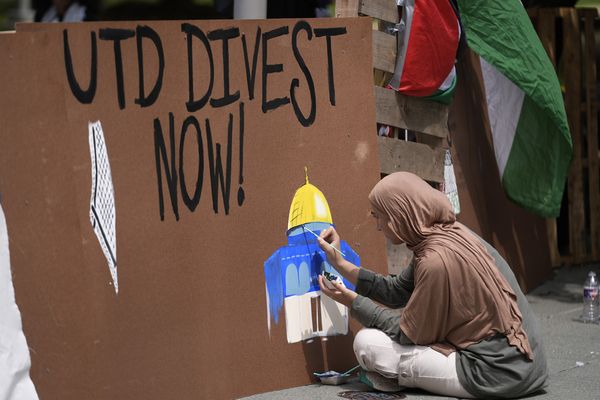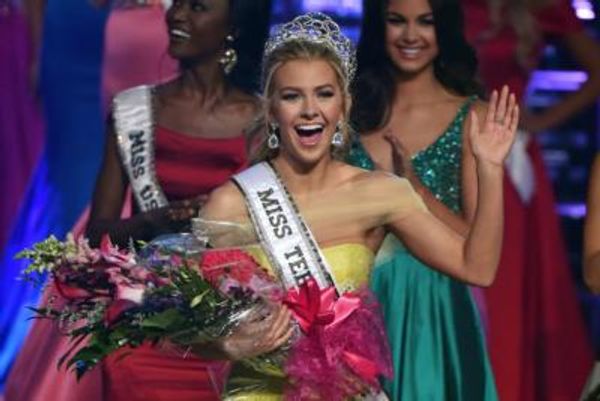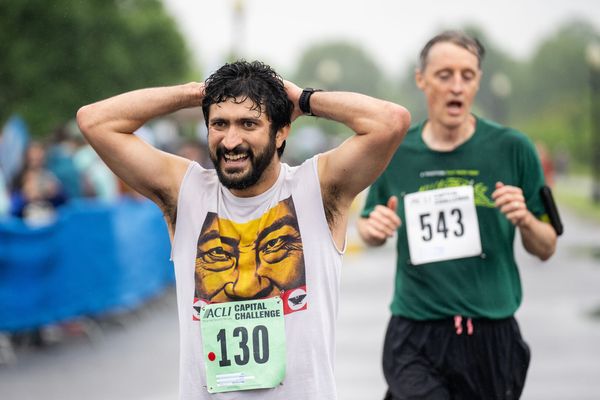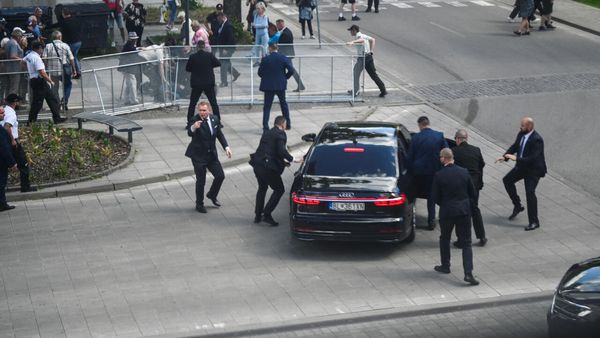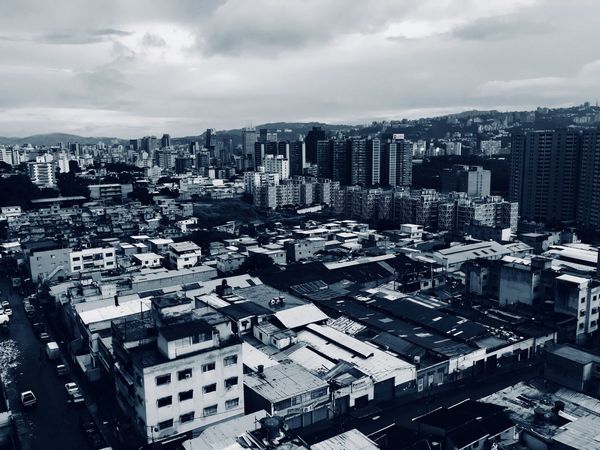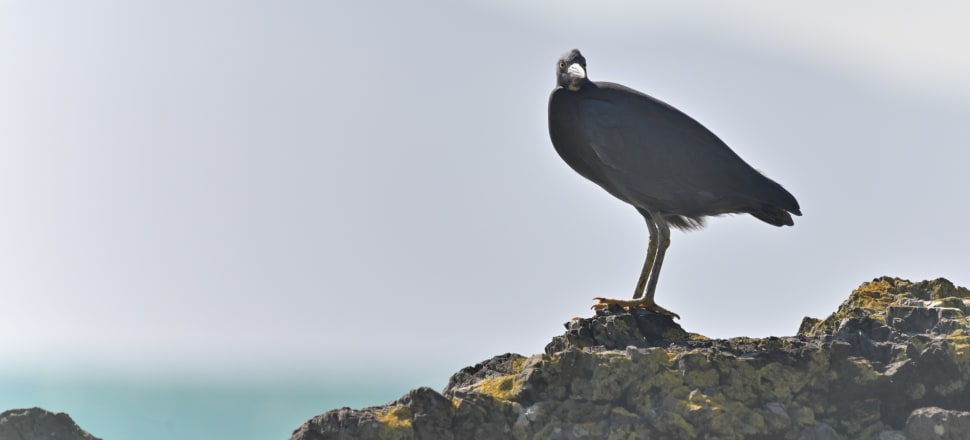
"I found a note from him under my door saying he had a girlfriend now and to please not say anything"
During the bad times at high school, my mother said that everything would be better when I went to university. Halfway through second year, it didn’t feel that way.
I was still tall. I still blushed. I still felt at once conspicuous and invisible. I wore all black, hoping to look like a gothy French intellectual but didn’t pull it off. My hair was mousey and only tolerated baby shampoo, which left it limp. When I’d tried dying it black in first year, the dye made my scalp burn and I had to wash it off before the colour took.
My good memory and vocabulary, which had seen me get straight A’s at school, weren’t enough anymore. I wasn’t equipped to express the opinions expected of me. It was a relief when I liked an assigned book; if I found it dull or disliked it, I assumed the fault was mine. Sometimes the book was beside the point, but I didn’t know what the point was. I was asked to consider how my reading of a text was capitalist. In literary theory, a lecturer showed a diagram of the female reproductive system and asked us to put up our hands if we thought it was beautiful. I had no idea what the right answer could possibly be.
My inexperience was a source of embarrassment. In first year I did make-up for a production of The Crucible. A guy called Craig had played one of the judgmental old men.
“Close your eyes,” I had instructed, as I leaned in to draw crows’ feet with eyeliner and dab concealer on his acne, and he’d shifted his leg so our knees were touching.
After the cast party we lay on his bed with its thin sour pillow. His hands fluttered and fumbled at me, then it all turned as clumsy and brutish as every animal I’d ever seen doing it. When he made a sound of final pleasure, I mistook it for dismay and apologised. I didn’t stay. The next week I found a note from him under my door saying he had a girlfriend now and to please not say anything if I saw them together. So at least the abhorrence was mutual.
In second year I went flatting with friends I made in the halls. They were both on the periphery too, in their own way. Kiri put people off with her directness. Lianne was anxious, though it had been better managed, or better hidden, in the halls. In the flat she cleaned instead of studying, instead of sleeping. Her hands were a mess of contact eczema and the place stunk of fake pine and bleach.
Kiri’s boyfriend, Alex, was writing a column on the end of the millennium for the student magazine. It was all he talked about.
“Midnight it’s all gonna collapse. Total system failure – no power, no water. People are gonna lose their shit.”
“For real?” Lianne asked, eyes wide. Everything about her seemed brittle.
One day I came home and her mother was packing up her bedroom, and said Lianne needed a bit of time out. Kiri said she’d been thinking of moving in with Alex anyway because it was dumb paying rent in two places. We ended our lease.
*
The flatmate ad was the briefest on the noticeboard. I’d missed out on other rooms, and was getting desperate. When I turned up, I thought I had the address wrong – no one else was there and the building was an elegant 1920s dental school conversion. I pressed the keypad and the lobby door opened as if attended by a ghost butler. Another door opened down the hall and I walked towards it.
“Hey, I’m Petra.” She was wearing a Smiths t-shirt and pyjama bottoms and eye makeup like a cat.
“I know.” I said my name. “We have some classes together?”
“Huh. Okay.” It wasn’t clear if she recognised me, or was taking my word for it.
I’d first noticed Petra in a 101 lecture on Owls Do Cry. Mid-spiel, the lecturer had paused and given an offhand laugh as if he’d remembered something, then told us how he met Janet Frame in someone’s garden and the wry observation she’d made about wisteria. Later in the lecture he repeated it all: laugh, words, gestures. The repetition revealed the spontaneous story to be embarrassingly well rehearsed. After a few minutes, Petra had called out, voice clear in the big theatre.
“Excuse me? We’d love to hear if you ever met Janet Frame?”
The lecturer had looked confused at the laughter.
Petra had the confidence not only to speak in class but to mock. Her clothes were like costumes. She started going out with Lucas, a guy doing fine arts, and the two of them were untouchable. They would have been king and queen of arts and humanities, if that were a thing. Then, after Easter break, the news was everywhere: Lucas was dead. It was an undiagnosed heart condition. Petra woke to him cold in the bed next to her. And, somehow, his death made her even more remarkable.
Petra showed me around. The rooms were big and airy, painted white. The furniture all matched.
“So, full disclosure, my parents own this place. They live in Singapore. My boyfriend was living here but he died and they don’t want me to be on my own.”
“Okay.”
“My friends are all so fucking careful around me and keep talking about what a fucking tragedy it is, so I don’t want to live with someone who knew him.”
“Okay,” I said.
“I mean, it is a tragedy, but that doesn’t mean we need to talk about it.”
“Right, yeah, that makes sense.”
She sighed and slumped back.
“You seem cool,” she said.
And it felt like the start of something big.
*
Usually I ate something out of a tin on toast, but the day I moved in I cooked.
“Good timing,” I said when Petra came home.
She frowned at the shepherd’s pie on the table.
“I hope it was ok to use this dish in the oven?” I said. “God, I didn’t check—are you vegetarian?”
“No. I thought we agreed to do our own thing for food?”
“This is just for the first night. To celebrate.”
She sat down and I asked if she wanted a glass of water.
“I can’t stand water,” she said with a shudder.
We were both taking a course on the development of the English novel. I talked about the assignment we had due that week.
“I haven’t started yet. I hate 18th Century literature,” she said.
A century dismissed, just like that.
She ate quickly then went to her room. That was one of the only times I saw her have a normal meal. She wasn’t on a diet – if anything, the opposite. She ate without rules: a steak mid-morning, cereal at night, a capsicum as if it were an apple. Coffee at all hours.
That night, I woke to use the toilet and saw a naked man coming out of the bathroom. I stepped back unnoticed into the dark of my doorway as he went past to Petra’s room. Grey hair curled on his chest and shoulders. He coughed like an old man in the morning and I stayed in my bedroom until they left.
He was the only one I ever saw but I sometimes heard others, arriving late, leaving early. I think it was someone different each time. In the year since The Crucible I hadn’t done anything with anyone. I listened to the sounds through the wall and imagined the weight of a person on me, and the feeling of someone under me. Petra made it seem easy.
*
I met Kiri for lunch. I had a black coffee and an orange. I was going for Petra’s mealtime insouciance but Kiri raised an eyebrow.
“That’s all you’re having?”
“I had a big breakfast,” I lied.
“You drink coffee, now? Is that Petra’s influence?”
I shrugged and took a mouthful, wishing I’d added sugar.
“So? How is it living with her?” Kiri asked.
“Great! I mean, we’re both busy.”
“Is she, like, in total mourning for Lucas?”
“She’s doing ok.”
“Losing someone like that must fuck you up though, poor thing,” Kiri said, with a hint of envy in her voice.
Really, I hardly saw Petra. She spent most of her time in her room. She asked me to say she was out if anyone phoned. Petra’s not here, sorry, I lied to her parents and friends, and added their names to a list. People who had never spoken to me before came up to me at university and asked how she was. I always said she was great. I didn’t tell anyone about the men she brought home. It felt like loyalty.
*
During the semester break, Petra visited her parents in Singapore and I got the bus back to the farm.
“You’re here in time for tailing,” my brother greeted me. He was in his last year of school, biding time until he could work on the farm full-time.
“I have to study.”
“Convenient,” he said.
“Leave your sister alone,” my mother said, swatting him away.
I was meant to be writing an essay on mid-century poets but I felt stifled in my childhood bedroom. My mother whistled in the garden. I watched her remove the frost cover from the lemon. It hadn’t occurred to me to envy her when I was growing up, but she was fundamentally well suited to her life. A good day was pruning the apple trees. A good evening was cracking walnuts in front of a TV murder mystery, my father nodding off in his matching La-Z-Boy.
I had the flat to myself for a day before Petra got home. I tried her expensive shampoo, and my hair sprung into vanilla-scented curls, almost making the itchy scalp worth it. In her room, books and CDs teetered in piles. Her clothes were way too small to try on. Even held up against me they looked like a joke. In her bedside drawer were lecture notes and condoms. An empty wrapper was still oily inside. At the bottom of the drawer I found an envelope of photos of Lucas. I sat on her bed and spread them out. Petra was in some: at a rocky beach, at a party. They looked like stills from a movie. I put them carefully back in order.
I was in the living room when Petra arrived.
“Welcome home!” I said. How’s your jet-lag?” Back then I thought it meant you were tired from being in an aeroplane.
“Um, fine.”
She wheeled her suitcase to her room and stopped in the doorway.
“Have you had a haircut?”
I panicked and said yes.
“It looks better,” she said.
I didn’t dare wash my hair with her shampoo again, worried she’d notice. But I used it sometimes between my legs, making the hair there silky. I imagined that part of me smelling, faintly, like her.
*
At the end of lectures I was at the bar in the student union with Kiri. I didn’t like drinking. It made me feel lumbering and slow, as if my lifetime of stodgy food – roasts and porridge and crumbles – had compacted in my legs, soaking it in. So when Alex came and told me Petra was outside, needing help, I was pleased to have a reason to go.
She was on the lawn with two girls who had asked me about her soon after I moved in. As I approached she fell over. They levered her up, but she stumbled again.
“I’ll take her home,” I said.
“Are you sure?” they asked, already backing away.
Her kimono was flapping open, lace underwear hiding nothing. I retied the sash at her waist and manoeuvred her into a taxi home.
She sat on her bed while I undid her combat boots. Her knees were grazed and grass-stained. I looked up to see tears rolling down her cheeks.
“Everything’s fucked without him.”
She curled up on the bed, eyes closed.
“Things will get better,” I said, tucking a blanket around her. “Trust me.”
In bed I couldn’t sleep, planning the next morning. I would sit her down. We’d properly talk. I’d suggest activities. We could start yoga, maybe a martial art. Join the film society.
I woke to music coming from the kitchen. Petra was making coffee. She looked scrubbed clean.
“How are you feeling?” I asked.
“Fine!”
“Last night—” I started, but she laughed and cut me off.
“Honestly, it’s all a blur.” She took her coffee to her room and shut the door.
*
Exams finished and summer arrived early. Feverish ranking began: the books, songs, movies, despots of the year, decade, century, millennium. Alex wrote his last column, both mocking and fomenting Y2K panic. I went to a party at his and Kiri’s place. Kiri said to bring Petra, but I made an excuse for her. Everyone sang along to that Prince song, and tried to keep up with the REM one, joining in on the chorus that we felt fine.
I had a job wrapping Christmas presents in a mall. In the lunch hour of my last shift I bought half-price reindeer socks for Petra. I wasn’t sure if we were doing presents, or if they were the right kind of ironic. She was out when I got to the flat and there was no sign of a present for me. I needed to get the bus home. I decided to leave the socks on the table, when I saw the note.
Hey! So I’m going to live on my own next year. No rush in clearing out your stuff. After the holidays is cool.
*
“Town’s full of freaks,” my brother said. “A guy at the supermarket had blue hair and big holes in his ears. You should find him for a new year pash.”
He made gross sucking noises.
Kiri and Alex and Lianne arrived in a station wagon full of camping gear. The day was hot and overcast. My mother gave us a bag of stonefruit and insisted we take wet weather gear.
“Good set up,” Alex said, eyeing the vegie garden. “I guess you guys have a generator? Your own water supply?”
“Oh God, don’t start,” Kiri said and got in the car.
The Event was in a valley near the swimming hole I’d been going to all my life. Traffic clogged the gravel access road, and Kiri and Alex bickered about the fuel efficiency of keeping the engine running. Lianne talked about how the pressure of studying literature had made her hate the thing she loved. She was thinking about going nursing. I almost suggested flatting together, but I hadn’t told anyone yet about Petra’s note.
We pitched our tents in the designated paddock, then wandered between music zones. Kiri and Alex went off in search of a guy rumoured to be selling pills. Lianne and I stood in queues for burgers, then smoothies, then the Portaloos. The rain started in the afternoon. By the time it was dark, mud sucked at every step and feet had churned the dance area to a swamp. People wore ponchos improvised from bin bags. Lianne gave up and went to the tent. I waited for midnight in my mother’s raincoat and gumboots. Near me, people wallowed in a particularly boggy area, patting mud onto their limbs and faces. A figure emerged and came over.
“I know you.”
I hadn’t had any contact with Petra since I read her note and didn’t know what to say. She picked up a hank of her mud-caked hair. “This actually smells disgusting. Like maybe animal shit?”
“Well, this is farmland.”
She rubbed at her forearms, smearing the dirt around.
“I know a place you can wash off,” I said.
“A bathroom?”
“No, the river. It’s a bit of a walk.”
The track was on the other side of the tents. It wasn’t signposted, but I found it easily. Under the trees, the rain was louder, and the music reduced to a pulse. We didn’t talk, but Petra hummed under her breath and reached out. She took my hand as I led her in the dark and I felt proud even though no one was there to see it.
“This way,” I said. The path forked and we zigzagged down to the river edge. I thought I’d taken a wrong turn, then realised the big rock that everyone called the elephant was half submerged. Usually the current here slowed to almost nothing, but even in the dark I could see it was fast. At normal water levels the riverbed dropped away sharply and the rocks were unpredictable underfoot. I didn’t know how deep it was now.
Petra stepped in and the river rushed around her ankles. She squatted down, letting her forearms dangle in the water
“It feels warm.”
“It always does when it’s raining.”
“You’re so connected with this place,” Petra said.
Was I? I remembered treading water and older boys arriving and diving off the elephant, then hands grabbing at me in the tawny murk as they swam past underwater, before popping up downstream, laughing. It was impossible to know whose hands, how many.
“You know what?” Petra stood up and started laughing. “I don’t know your name. Like, no fucking clue.”
Across the valley, the music stopped. Voices started. The words were indistinct, sounded like an exhalation.
Eight…
Seven…
Six…
Petra moved as if the countdown was an instruction. A step, and a step, and another.
A roar. It might have been the river, it might have been the crowd. I watched Petra go. A new thousand years was just beginning and I would forever be the one who knew her best, the one who knew her last. Next week's short story is by Eastbourne writer Maggie Rainey-Smith.
